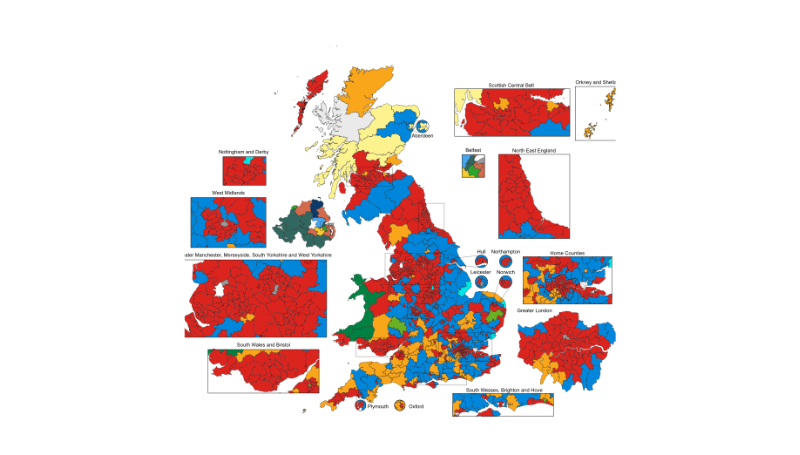Editorial
WSJ, July 5, 2024
“Their failures created an opening for Reform UK, led by Nigel Farage, a party promising stricter immigration controls and the lower-tax policies the Tories should have delivered years ago. The exit poll pointed to a 13-seat win for Reform, which from a near-standing start signals a level of support that marks the party as a political force.”
The Labour Party won Britain’s election Thursday in a landslide, but the paradox is that it’s unclear what the victory means for the United Kingdom and its allies—beyond a repudiation of the ruling Tories.
The exit poll commissioned by television broadcasters—generally reliable in the U.K.—pointed to a sweep akin to Tony Blair’s New Labour surge in 1997. Center-left Labour under Keir Starmer is on track to enjoy one of the largest parliamentary majorities in history, potentially with as many as 410 seats in the 650-member House of Commons, up from 203 in 2019. The Conservatives were tipped to win 131 compared to 365 in 2019.
This is a huge Labour rebound after its stinging rebuke from voters in December 2019. Credit Mr. Starmer for the political CPR. He spent his first years as leader purging the leftwing, antisemitic fringes emboldened by his predecessor Jeremy Corbyn. Thursday’s victory was possible because Mr. Starmer persuaded voters that Labour is once again a patriotic, credible governing party.
That governing credibility matters because the Conservative Party lost it so spectacularly during its 14 years in power. The party burned through five prime ministers in that span, and even more philosophies—from big-government-conservatism to net-zero climate illusions to free-market-supply-sider for a month to pro-European Union to get-Brexit-done and seemingly everything in between…. [To read the full article, click here]


